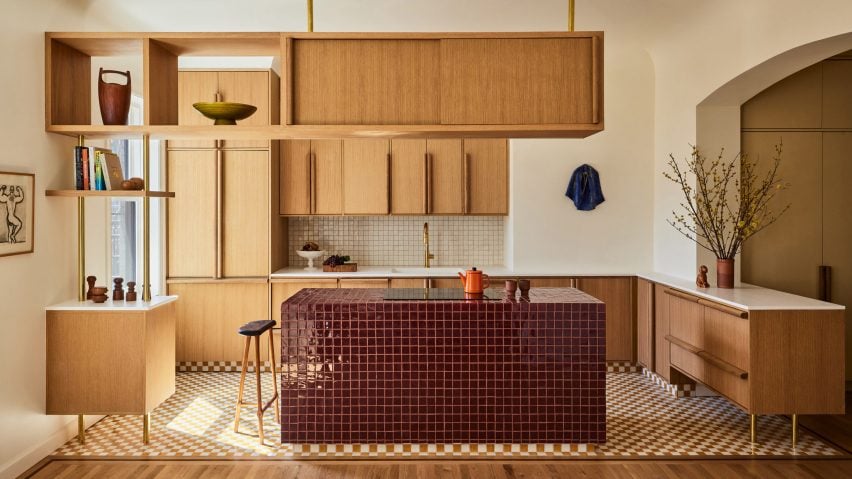
GRT Architects combines oak and mosaic tiles for East Village Apartment renovation
New York-based GRT Architects has rearranged the layout of an apartment in the East Village and added warm materials during its renovation.
The studio undertook the project in Onyx Court, a six-storey corner Beaux-Arts structure on Second Avenue built in 1902 by Harde & Short.
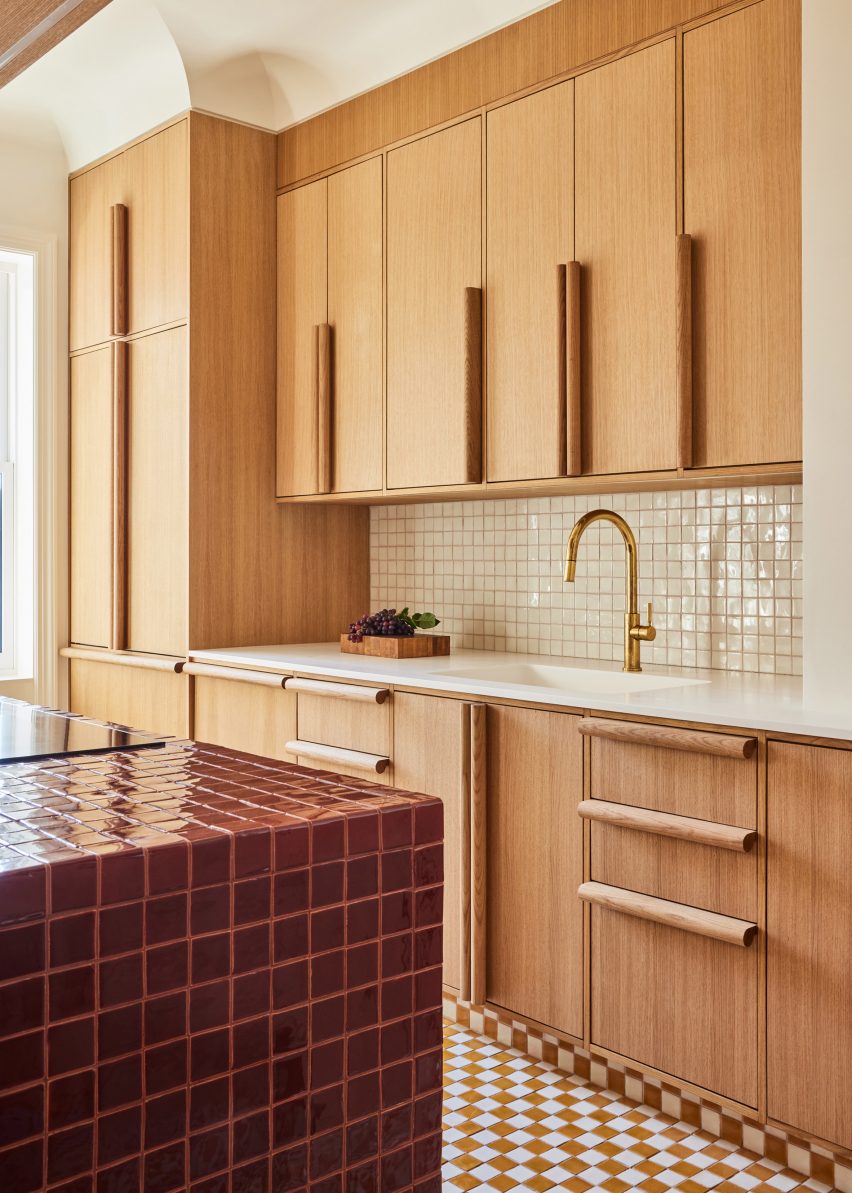
Goals for the renovation included reorganising rooms to improve sightlines through the apartment and optimising the natural light available in each room.
"Our renovation completely rethought the apartment's layout while preserving its turn-of-the-century disposition," said the GRT Architects team. "The space is neither more open nor closed than when we found it."
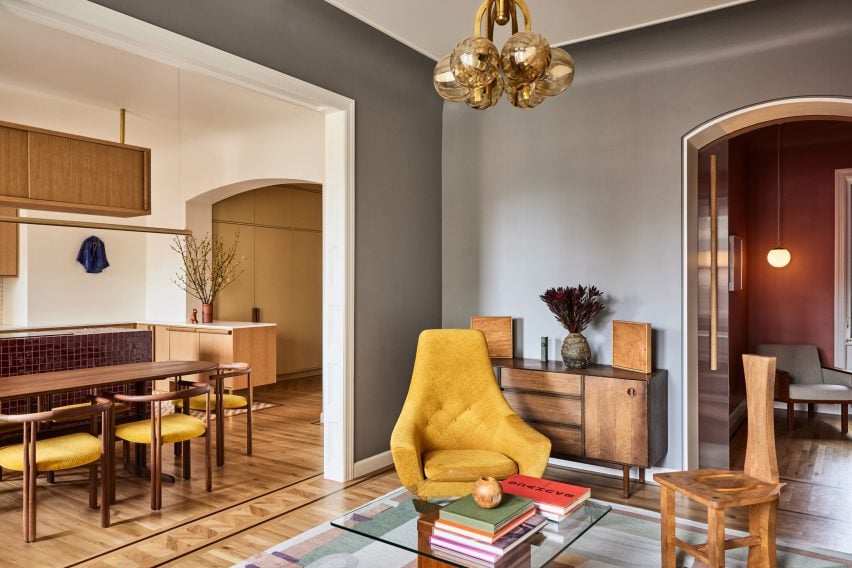
The first move was to straighten a corridor from the entrance, to provide a view of an east-facing window from the front door.
To enable this, a shallow-arched opening was created in a load-bearing brick wall – the only structural change made during the overhaul.
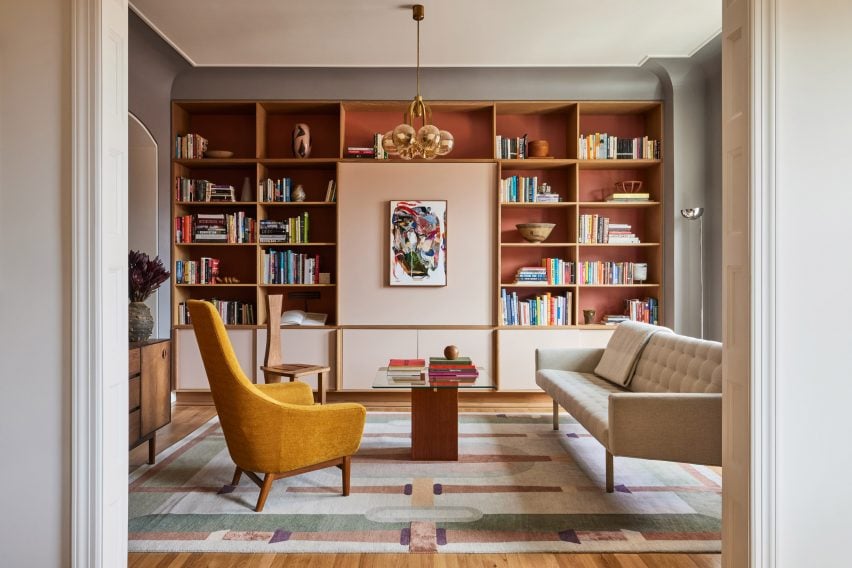
"The journey down this corridor celebrates the building's irregularity with asymmetrical niches and rounded openings in thick plaster walls," GRT Architects said.
This journey ends at the semi-open kitchen, which was relocated from diagonally across the apartment, to an area with better light and improved integration into the rest of the home.
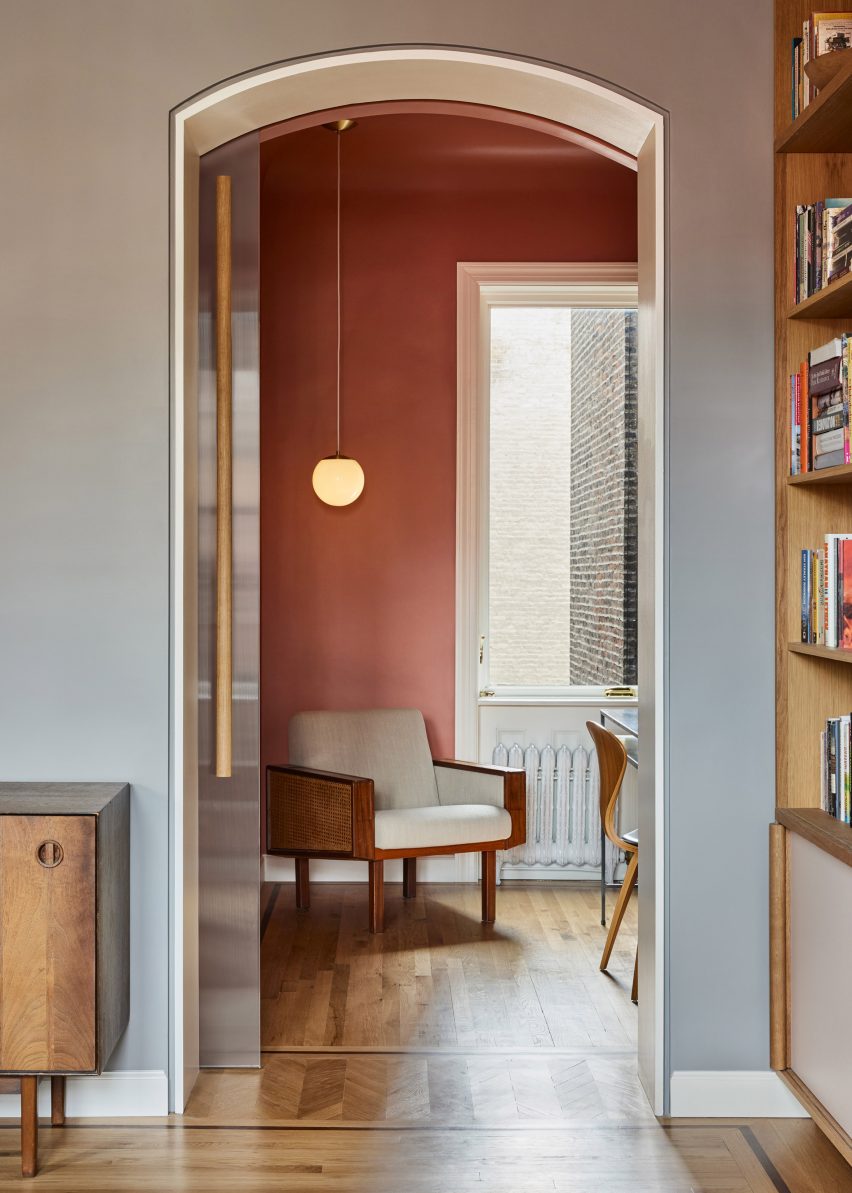
An island clad in oxblood-coloured tiles sits at the centre, surrounded by white oak cabinetry with oversized handles and a satin white countertop.
Chequerboard two-inch mosaic tiling across the kitchen floor ends below a storage unit suspended from brass bars, clearly defining this space from the adjacent dining room.
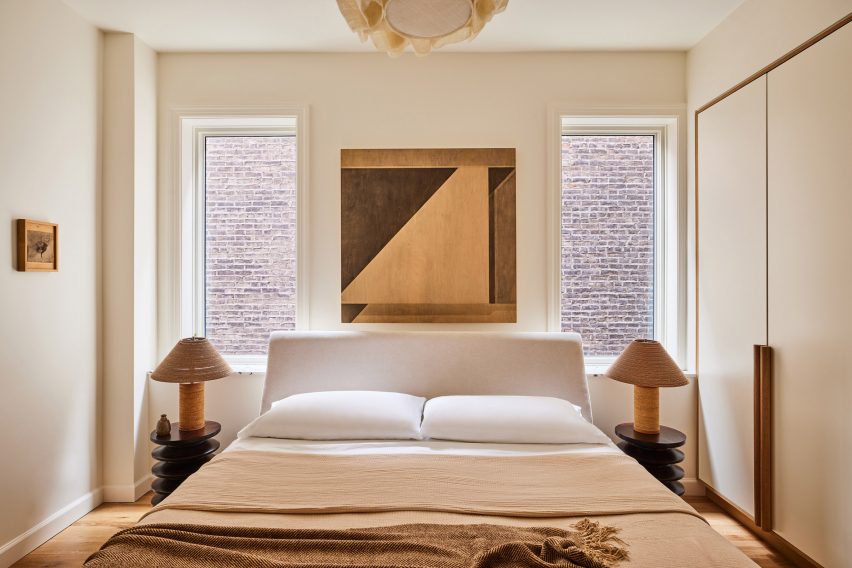
A minimal brass pendant hangs above the walnut dining table, while the living room is found through a cased opening and also demarcated by a strip of herringbone parquet flooring.
Largely decorated in a cooler grey hue compared to the warmer tones elsewhere, the living room features accents like a yellow armchair that matches the upholstery of the dining chairs, and a storage wall backed with sienna-coloured panels.
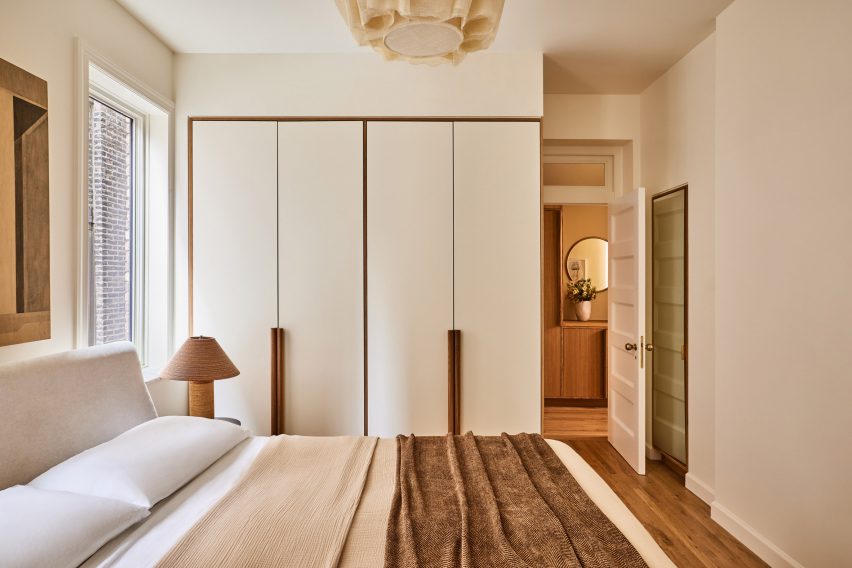
"We organised this space around a full wall of built-in shelves which includes a sliding panel that conceals a television," said GRT Architects.
"A series of complementary colours emphasise the relief of this composition while oak pulls tie it back to the kitchen."
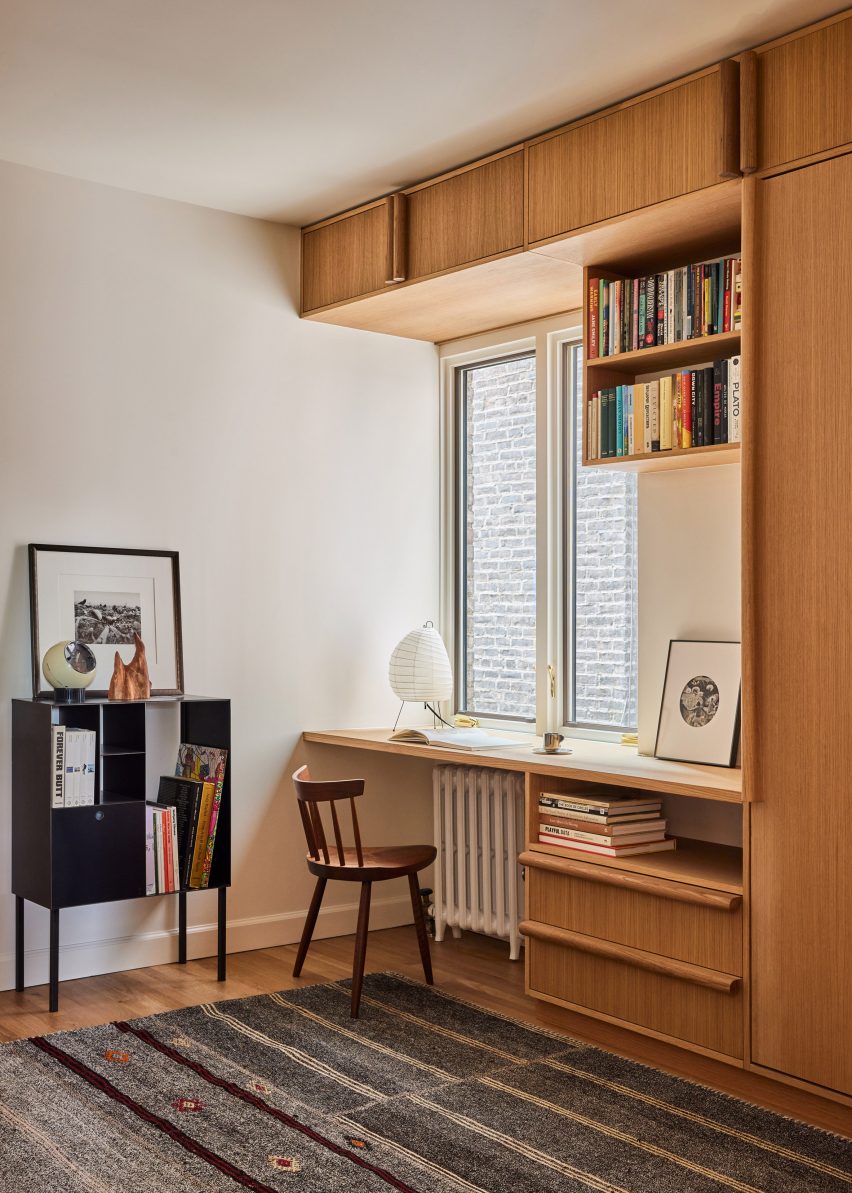
Tucked behind a sliding textured glass door, a small office continues the same sienna shade across all four walls.
The primary bedroom is located in place of the old kitchen and includes custom built-in closets – one occupying the shaft of a defunct dumbwaiter.
An adjacent bathroom combines a variety of hard and soft materials, ranging from flecked terrazzo and green mosaic tiles to oak cabinet doors that visually tie back to the kitchen.
In the second bedroom, a murphy bed enables the space to be used as another office when needed.
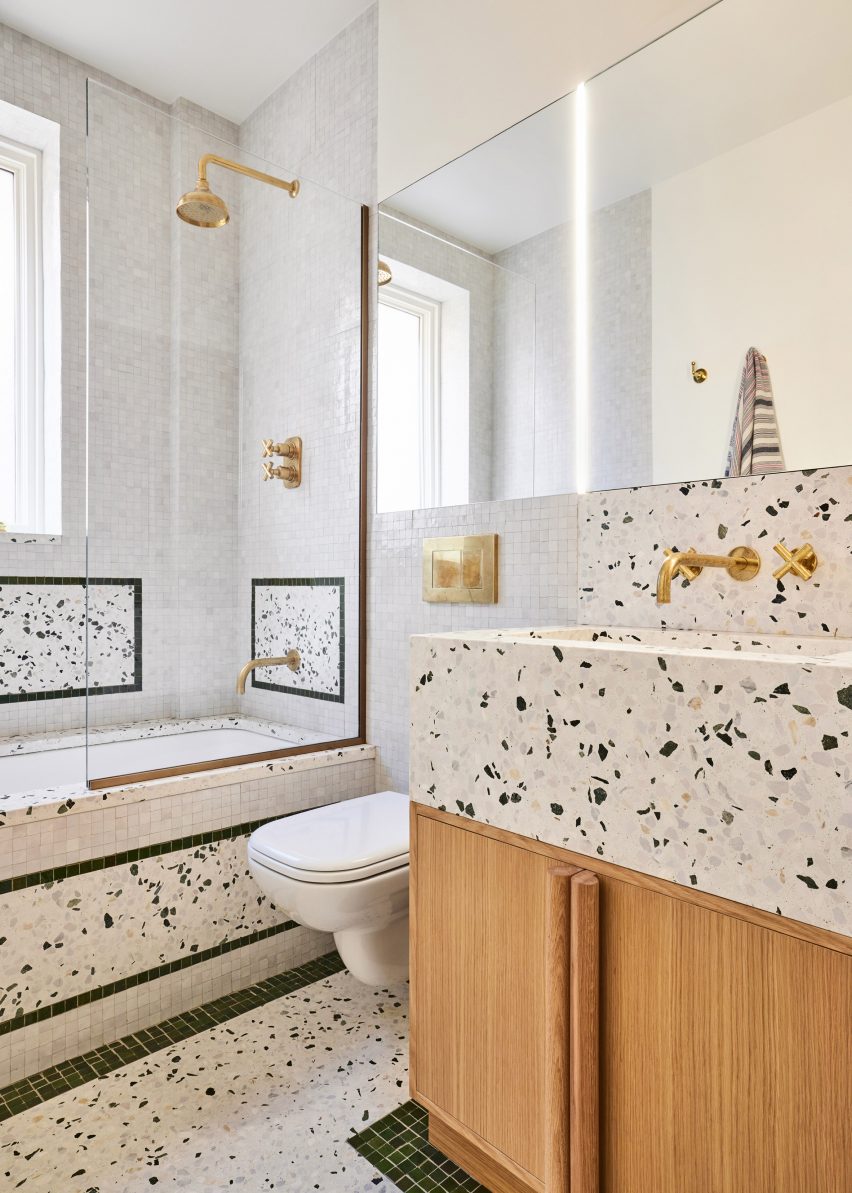
A powder room was also slotted into the floor plan as part of the reorganisation.
"We found space for this small room by greatly reducing circulation space without compromising privacy," the team said.
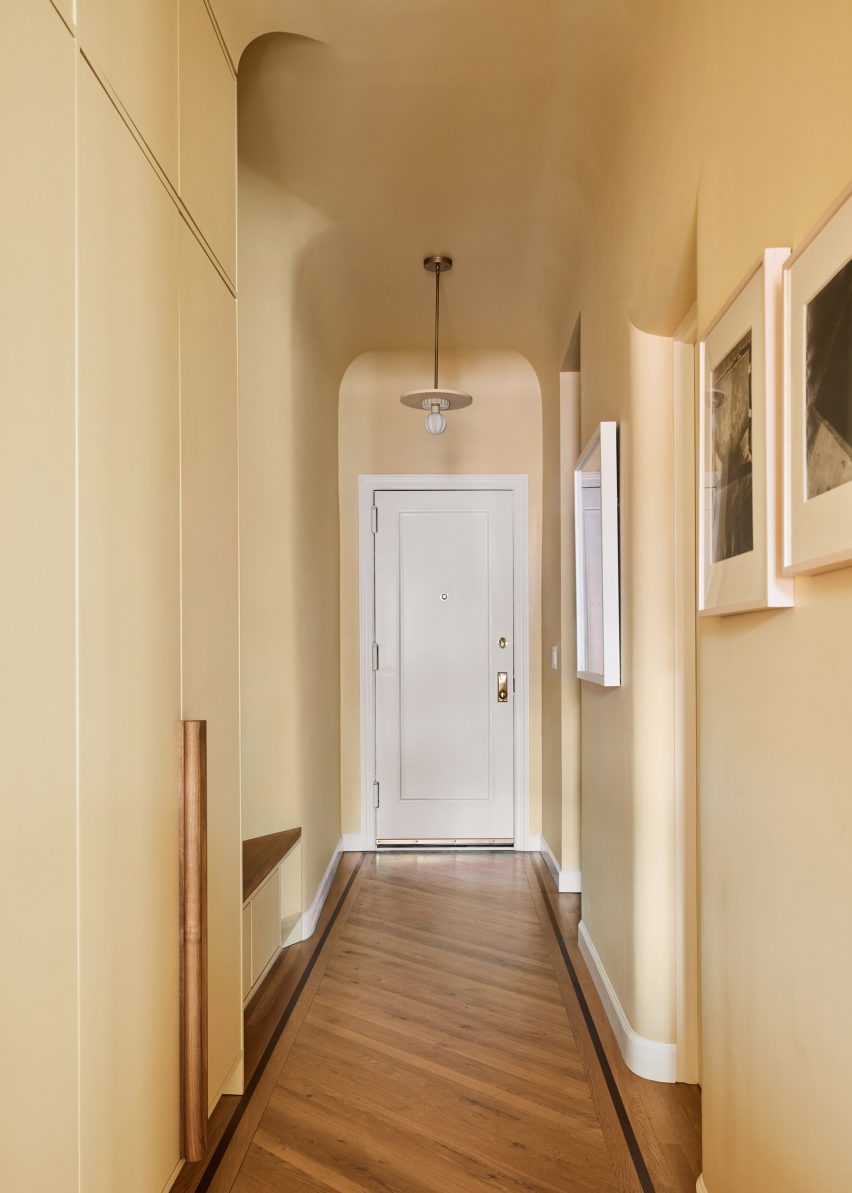
GRT Architects, founded by Tal Schori and Rustam-Marc Mehta in 2014, has worked on a variety of projects in New York City – from a Brooklyn townhouse overhaul to a cosy bakery.
More recently, the firm has expanded further afield, completing a cedar bungalow above marshland on the Connecticut shoreline and a black house with huge triangular windows in Dutchess County.
The photography is by Nicole Franzen.
Project credits:
Design architect and architect of record: GRT Architects: Rustam Mehta, Tal Schori, Pablo Taberna, Chelsea Stitt
MEP engineer: ANZ
Structural engineer: Old Structures